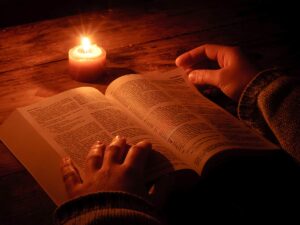How Small Acts of Prejudice Have Major Consequences
There are two parallel stories told about Jewish life in Germany and Eastern Europe prior to the Holocaust. One is how Jewish citizens were simply living their lives, working, going to school, raising their families and generally trying to fit in. Before the Holocaust, there were 9 million Jews living in the countries that would be occupied by Germany during World War II. They worked as farmers, tailors, seamstresses, factory hands, accountants, doctors, teachers, and small-business owners. About 80% of the Jews in Germany were legal citizens, and many of those had lived in Germany for multiple generations. In fact, more than 100,000 Jews fought for Germany in World War I and 12,000 lost their lives fighting for “their” country. For all intents and purposes, they were Germans.
Another Story of Jewish Life Before the Holocaust
 Despite their assimilation and desire to fit in, the Jews in Germany and Eastern Europe faced prejudice and bigotry. Many Germans openly questioned whether Jews could or should be citizens. They were subjected to many of the same antisemitic stereotypes we hear today. By 1935, the German regime was beginning to put its beliefs about the inferiority of the Jewish people into law. The Nuremberg Laws stripped the Jews of their citizenship and officially declared that all Jewish people in Germany were “subjects of the state.” By passing laws that limited the rights of the Jewish people in Germany, it made it permissible to marginalize them. They couldn’t vote, they couldn’t occupy positions of leadership, they couldn’t work in certain jobs. It became not only acceptable to treat the Jewish people as lesser, it was legally permissible to do so. And once the government made it legal, it was a natural progression to the “Final Solution.”
Despite their assimilation and desire to fit in, the Jews in Germany and Eastern Europe faced prejudice and bigotry. Many Germans openly questioned whether Jews could or should be citizens. They were subjected to many of the same antisemitic stereotypes we hear today. By 1935, the German regime was beginning to put its beliefs about the inferiority of the Jewish people into law. The Nuremberg Laws stripped the Jews of their citizenship and officially declared that all Jewish people in Germany were “subjects of the state.” By passing laws that limited the rights of the Jewish people in Germany, it made it permissible to marginalize them. They couldn’t vote, they couldn’t occupy positions of leadership, they couldn’t work in certain jobs. It became not only acceptable to treat the Jewish people as lesser, it was legally permissible to do so. And once the government made it legal, it was a natural progression to the “Final Solution.”
Both of these stories are important. It’s important to know that the Jewish people lived in Germany and Eastern Europe for generations and considered themselves productive, contributing members of society. It’s equally important to know that, at first slowly, their rights and status as citizens were eroded. They faced minor accounts of prejudice that evolved into legal bigotry and eventually genocide.
The Consequences of Uncontested Acts of Prejudice
Why do we need to understand what Jewish life was like in Europe before the Holocaust? Because it helps us to identify similarities in countries and communities around the world today. Small acts of prejudice – hurtful language, slurs, stereotypes, seemingly isolated events – snowball. Minor acts of uncontested bigotry that are implicitly or explicitly accepted tell people in power that marginalizing certain people is acceptable.
So we need to be aware and vigilant. When you hear people say that an act of prejudice is an isolated event; when you hear people say that a racial or ethnic slur is “just a joke;” when an act of bigotry is public and leaders don’t denounce it; these are the steps that could lead to more overt and more harrowing acts of hate and intolerance.
When we talk about using the lessons of the Holocaust to create a more just society, this is one of the lessons. Small acts of prejudice can and do lead to terrible things. The lesson is that no act is too small or too isolated for us not to speak out and stand up, whether for our own group or others. It is up to us to stop prejudice, bigotry and marginalization before it leads to something unimaginable.




